At the moment when the dividend of domestic Internet has peaked, more and more Chinese entrepreneurs and investors have begun to pay attention to "globalization". In 2021, 36 krypton will go to seaContinue to launch globalization manualTo explain the basic features, cultural environment, market characteristics and entrepreneurial opportunities of Germany, France, Britain, Italy and other European countries one by one. After readingGermany、France、britainandItalyLater, we will take the reader to know about Russia, the "largest country in the world".
What do you think of when you mention Russia? Is it the world's largest oil and gas exporter? Is it the world famous vodka and caviar? Or a "fighting nation" with bears as pets? This country, which has the largest land area in the world, also has the world's largest forest coverage, the longest railway (Siberian Railway), and many world firsts in energy. In addition, in the list of world top 500 enterprises in 2021 released by Fortune, Gazprom, Lukoil, Rosneft Oil and Sberbank were listed.

So, what kind of country is Russia? What are the pillar industries? What about the venture capital environment? Today, let's find the answer together.
Basic information of the country
Geographical Environment and History
Russia, also known as the Russian Federation, is a country across Eastern Europe and northern Asia, with a land area of about 17 million square kilometers, which is the largest country in the world.
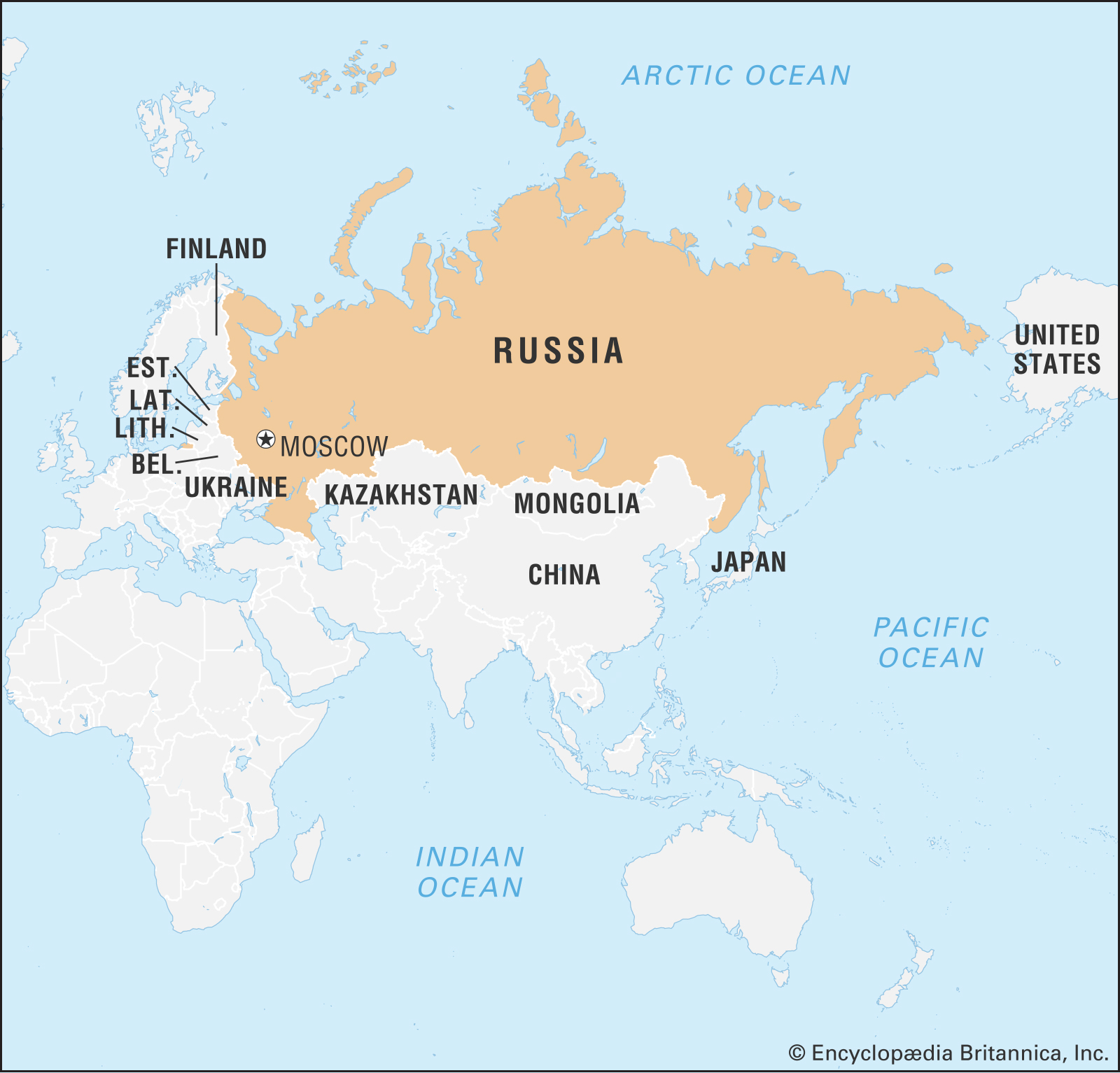
Speaking of the history of Russia, unlike China, Italy, Britain and France, which have a history of thousands of years, Russia has a relatively short history, which can be traced back to the 8th and 9th centuries. In the history of more than 1000 years, this land was divided into "feudal states" for a long time, and was ruled by Mongolia (Golden Horde Khanate) for 240 years. After the disintegration of the Soviet Union, the 6th People's Congress of Russia decided to name the country "Russia" or "Russian Federation" in April 1992.
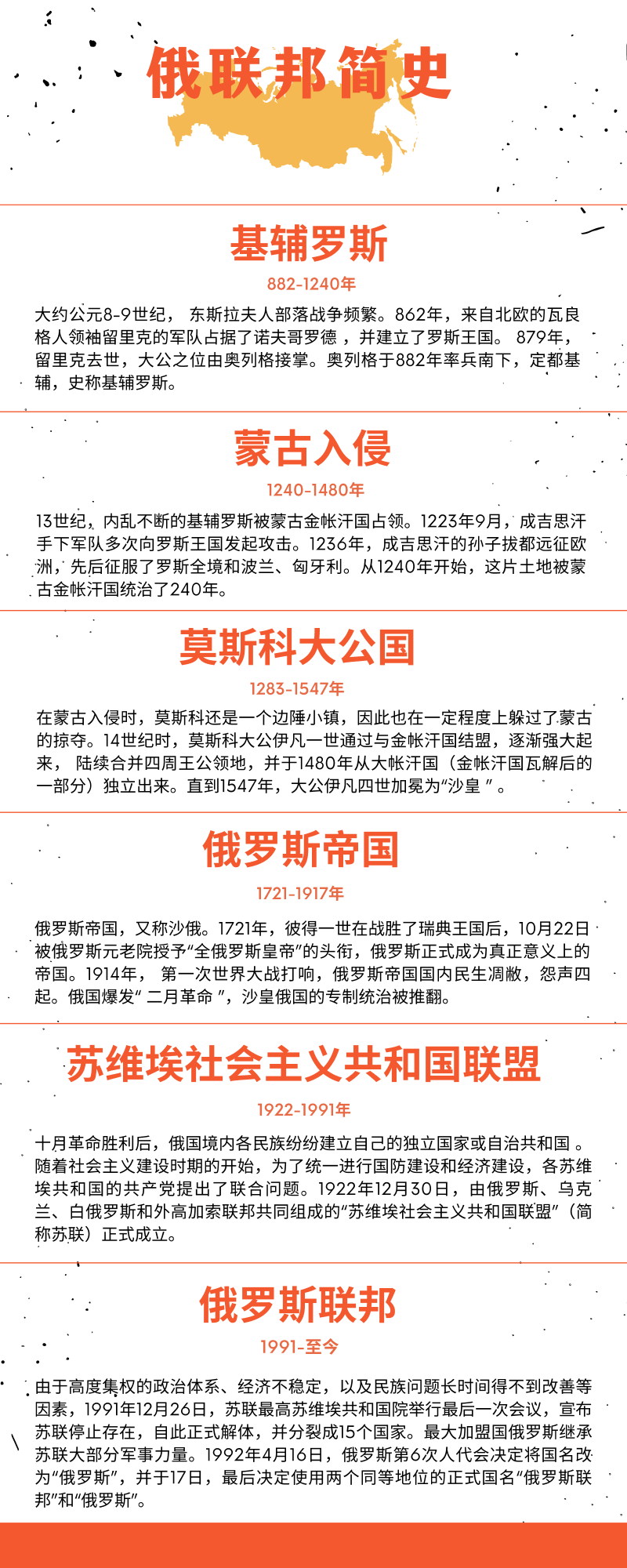
Population and age
According to the statistics of World Population Review in 2021, the Population of Russia is about 140 million, about one tenth of that of China (2021). In addition, according to the data of the World Bank in 2020, about 75% of the 140 million people live in cities, which is similar to Germany (77%) and Italy (70%).
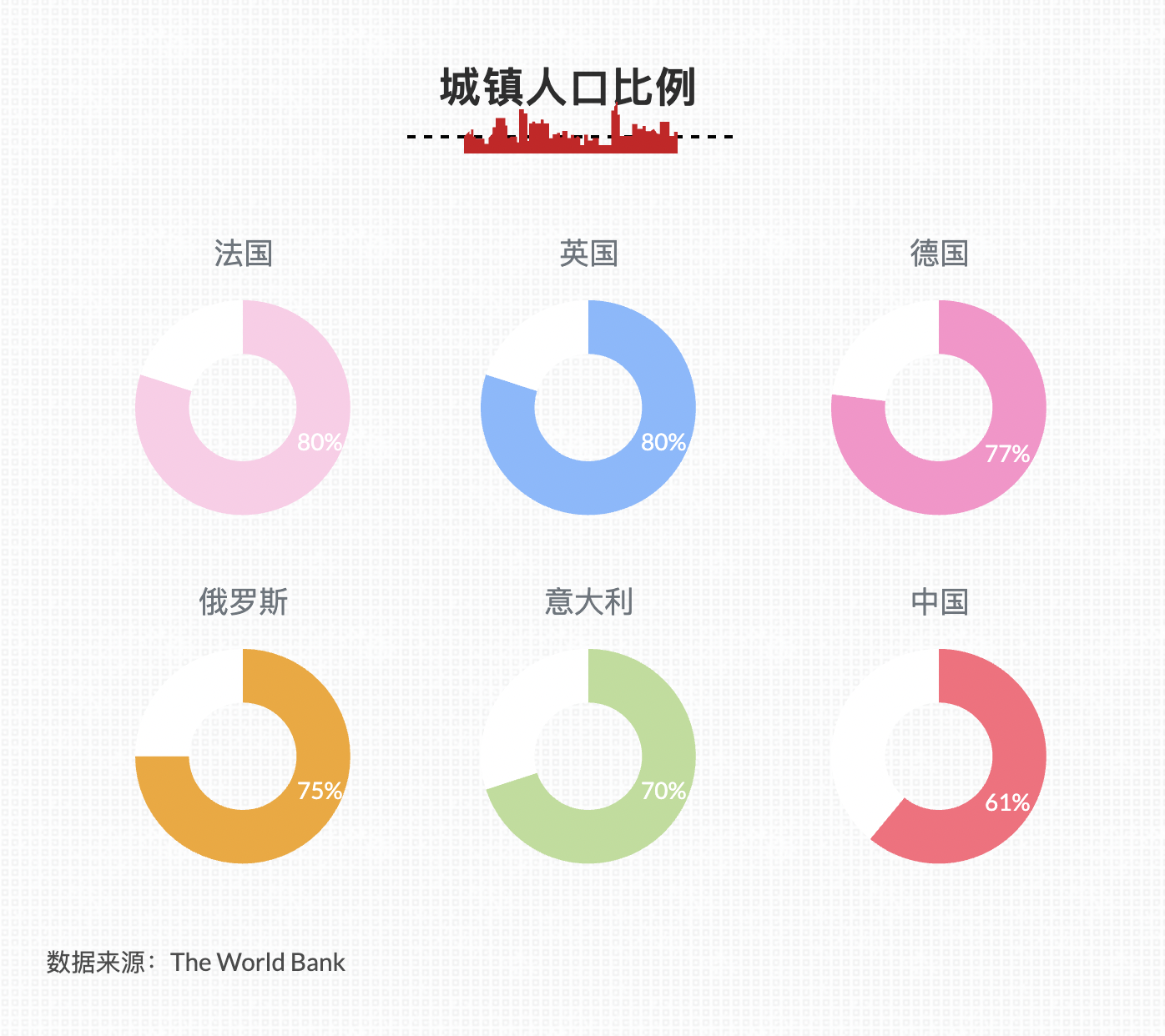
From the perspective of population age structure, compared with the four major European economies, the aging problem of Russia's population is not very serious. The median age is about 39.6 years old. In addition, according to the 2021 data of Knoema, the world data atlas analysis platform, about 16% of the 140 million people are 65 years old or older. However, like many countries in the world, Russia is also plagued by the problem of minority children. The World Bank's 2019 data show that Russia's fertility rate is only 1.5%.
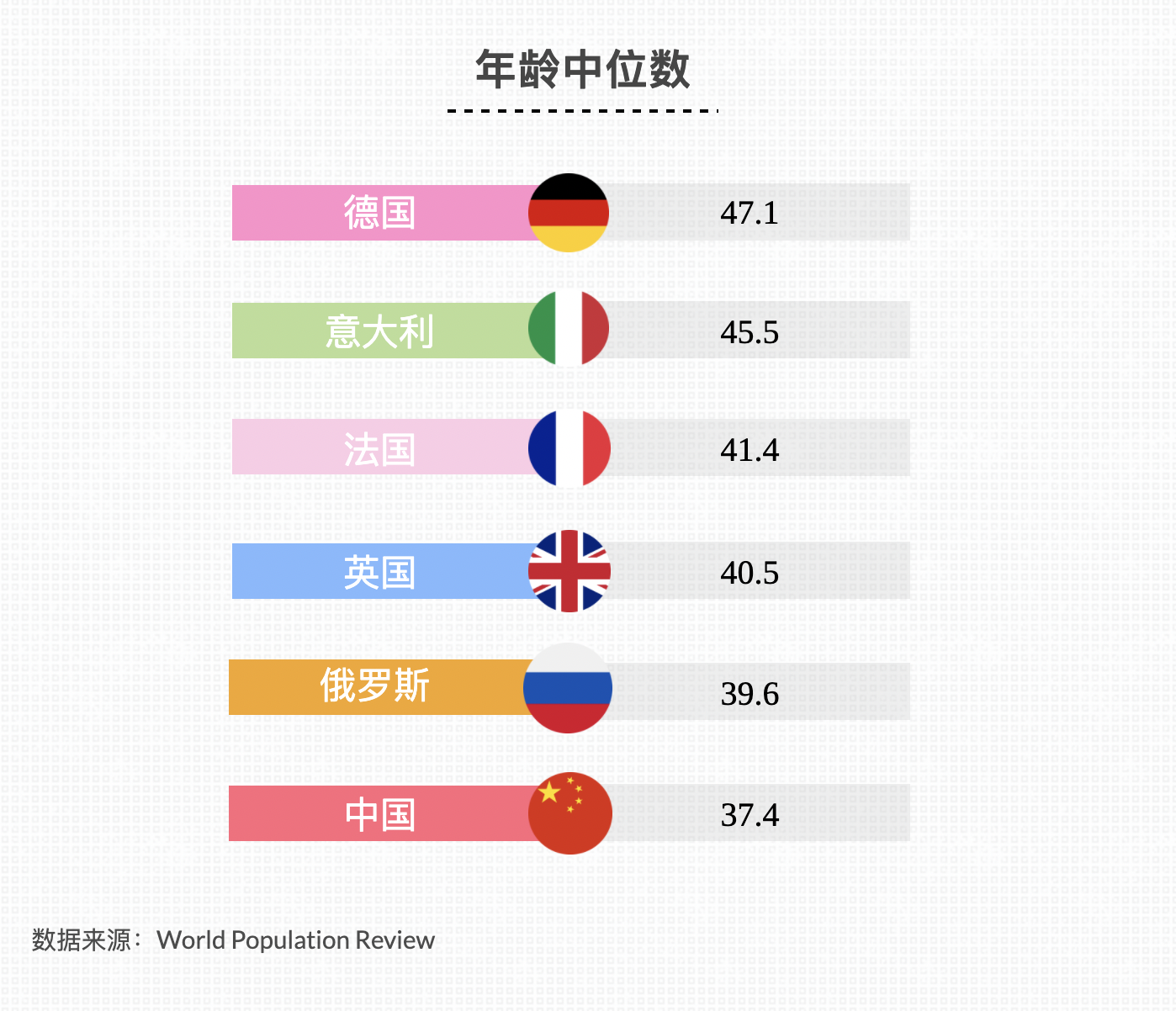
education
Russia is also a country that attaches great importance to education popularization, and the adult literacy rate is close to 100%. Like China, the Russian Federation currently has 9 years of compulsory education. The schooling system is divided into preschool education, general education, vocational and technical education and higher education.
Among them, general education is equivalent to primary and secondary education in China, mainly divided into: primary general education (4 years), basic general education (5 years) and full general education (2 years). According to the Education Law of the Russian Federation, primary general education and basic general education are compulsory. Russian students will receive the basic education certificate after graduation from Grade 9, and the compulsory education will be ended.
Economy and venture capital ecology
As a world superpower comparable to China and the United States, Russia has a very rich energy and powerful military industry. However, its economic development is weak. In recent years, under the influence of high inflation rate, international sanctions, energy transformation, epidemic impact and other factors, Russia has been facing the dilemma of slow economic growth. Although the Russian economy will achieve restorative growth in 2021, its economic development will still face many uncertainties in 2022.
When it comes to starting a business in Europe, I believe many people will first think of Britain, France and Germany. In fact, in recent years, the trend of "decentralization" of venture capital ecology in Europe has emerged, and a large number of "emerging entrepreneurial centers" are also rising, including Moscow, the capital of Russia. However, at present, compared with the United Kingdom, France and Germany, Russia's venture capital environment is still in the early stage of "becoming perfect".
Economic situation
According to the data of the International Monetary Fund (IMF) in 2021, Russia's gross domestic product (GDP) is about 1.6 trillion, ranking 11th in the world and fifth in Europe.
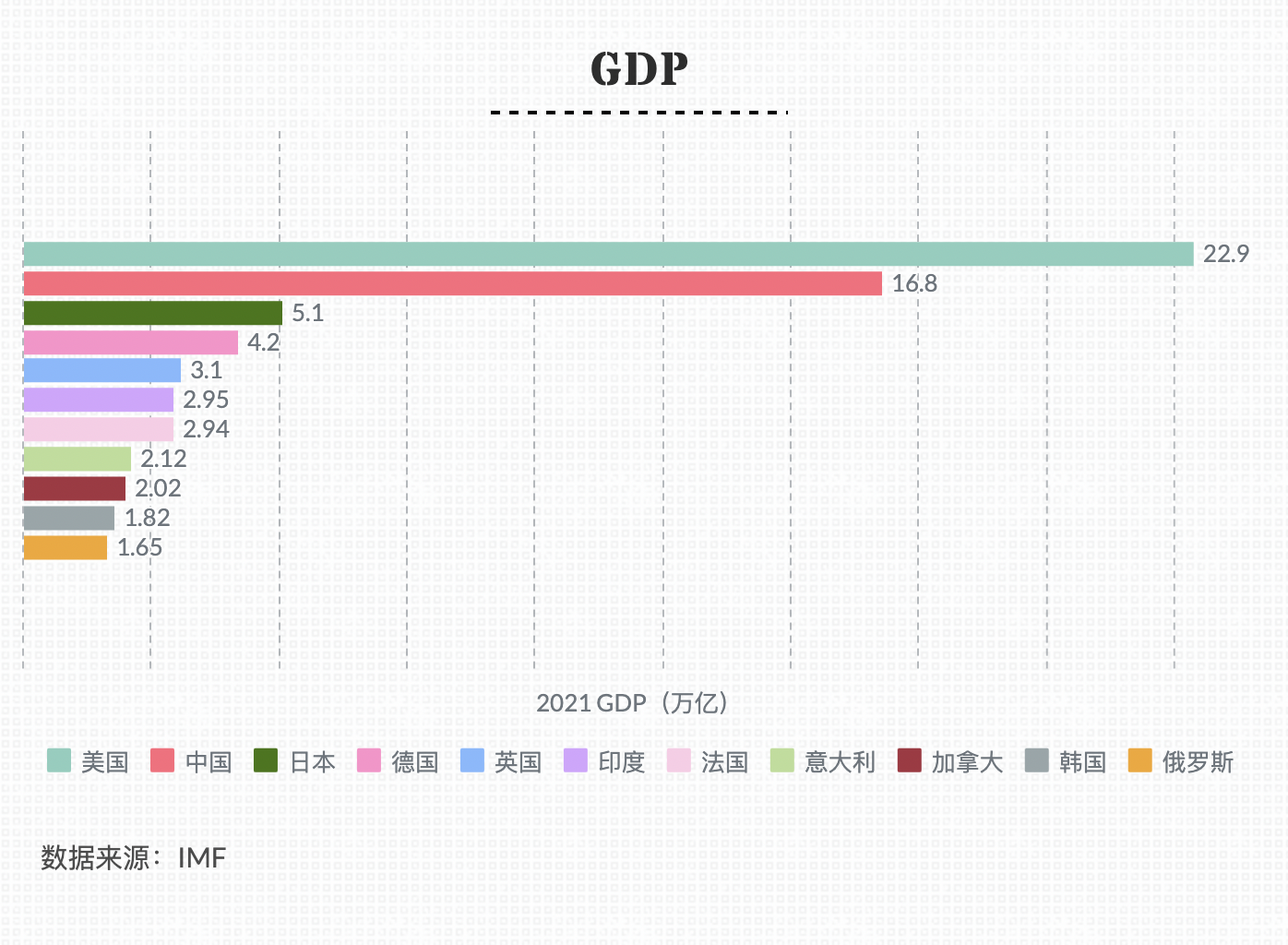
In fact, Russia's economy has been in a downturn in recent years. According to a research report released by Bruegel, a well-known European think tank, Russia's economic recession began in the middle of 2014. The reason is that the country's high inflation rate (the inflation rate is expected to be 8.39% in 2021), geopolitical problems and international sanctions, labor shortage, energy export income loss caused by the energy transition (carbon neutral), and the impact of the epidemic have all delayed economic growth.
In the past 2021, this situation seems to have eased. In December 2021, Russian President Putin said at the government meeting that the Russian economy will not only recover after the decline in 2020, but also surpass the pre epidemic level and return to the development track. The situation of the labor market is even better than before the epidemic, and the unemployment rate is decreasing. Putin also predicted that Russia's economic growth will reach 4.5% in 2021, and infrastructure development is one of the driving forces of economic growth.
However, some experts believe that if Russia wants to maintain economic growth in 2022, the government needs to overcome some difficulties and deal with potential risks. According to the Russian Viewpoint, experts from the World Bank believe that the Russian economy will face four major threats in 2022: epidemic, high inflation, new international sanctions and energy transformation.
From the perspective of the living standard of the Russian people, the per capita GDP of Russia is about 11500 US dollars, slightly lower than that of China. In addition, Russia is a country with a large gap between rich and poor, but the gap is gradually reducing in recent years. According to the Russian Daily, the average wage of high-income people was 34 times that of low-income people in 2000, and by 2019, the gap had narrowed to 13 times.
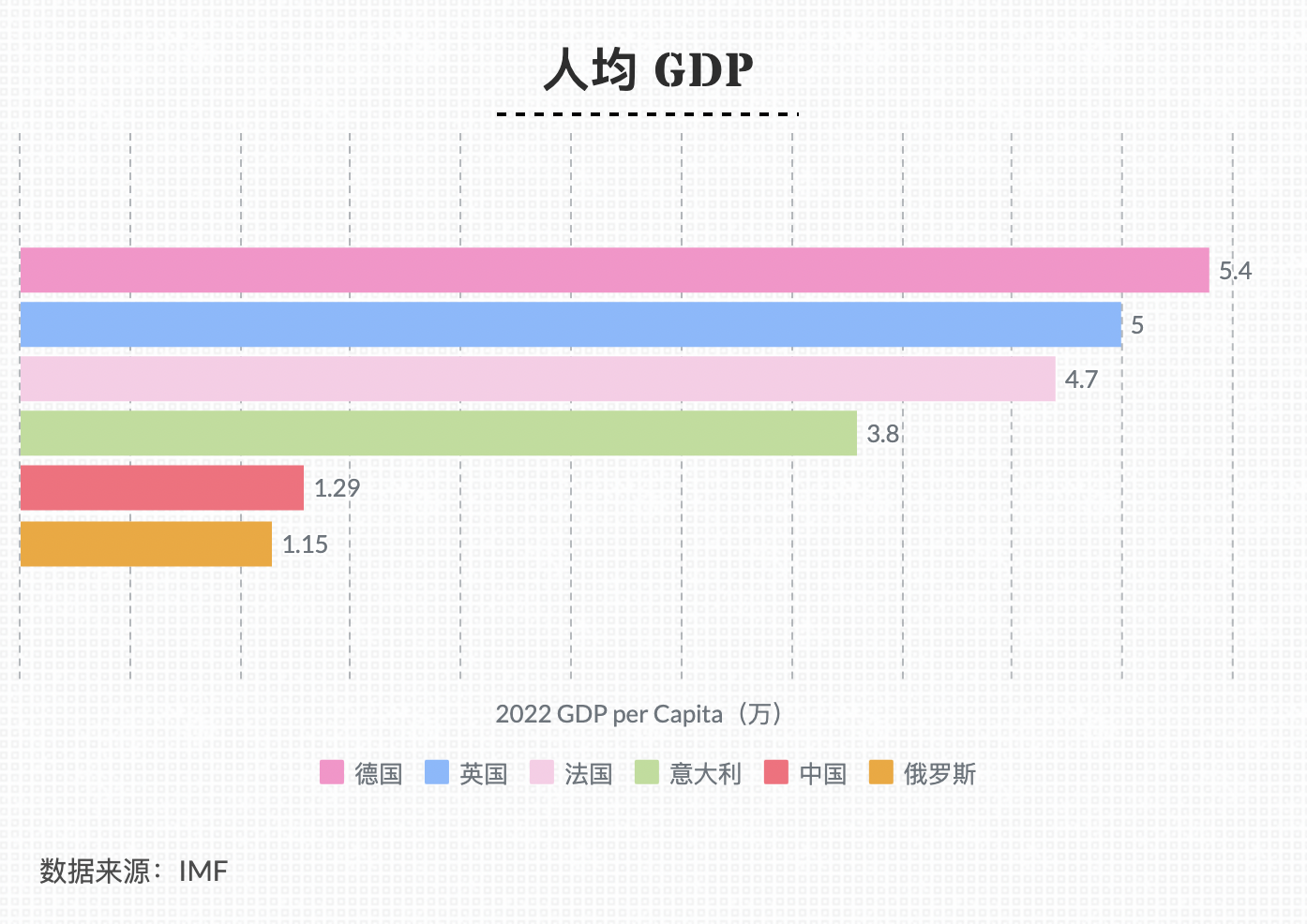
industrial structure
Speaking of industrial structure, industry, service industry and agriculture are the three pillar industries of the country.
As we all know, Russia is a "heavy industrial power", especially in mining, power, military and infrastructure. Among them, as the world's leading energy exporter, Russia's mining industry is very developed. In addition, the country also leads the world in military industrial construction and mechanical industrial construction. However, in recent years, the proportion of industry in the country's GDP has gradually decreased. According to statistics, the proportion of Russian industry in GDP has dropped from more than 50% in the 1980s to an average of 35% in the last five years, and the economic value created by oil and natural gas accounts for 13.3% of the 35%.
In contrast, the service industry in Russia is developing rapidly. Compared with 38% of GDP in the 1990s, the proportion of service industry in Russia's GDP will increase to 62% by 2020. At the same time, the research results of experts from the All Russian Institute of Labor of the Ministry of Labor and Social Security of Russia show that in recent years, the number of people employed in the Russian real economy has decreased, while the number of people employed in the service industry has increased rapidly. Specifically speaking, the Russian service industry mainly includes financial services, communications, tourism, advertising and marketing, real estate, health care and catering.
Let's talk about agriculture. Although agriculture is also one of the three pillar industries in the country, the cold weather and geographical conditions make it difficult to farm in Russia. Therefore, the proportion of Russian agriculture in GDP has never exceeded 5%, and the proportion of employees in the total has never exceeded 6%. However, Russia is still a large agricultural country with a vast territory. In 2020, the available arable land will be 123 million hectares, ranking fourth in the world. The per capita arable land will be up to 0.85 hectares, far higher than the world's per capita arable land level. The country mainly produces wheat, barley, oats, rye and other crops. Besides grain, it also grows economic crops such as soybeans and sugar beets.
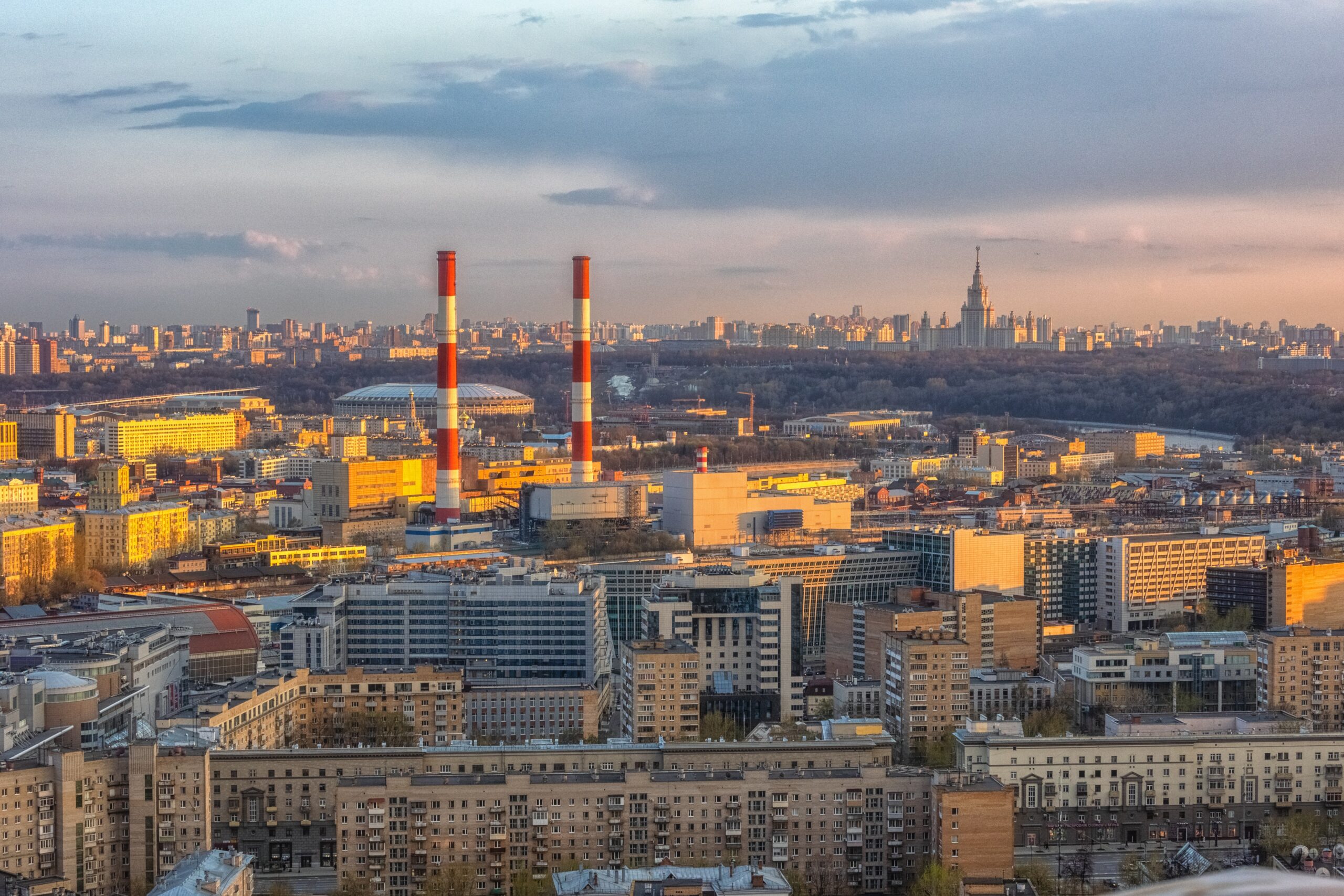
Venture capital environment
To sum up, compared with Britain, France and Germany, which have good business environment, Russia's venture capital environment is still at an early stage, but has improved significantly in recent years. According to the 2020 Global Business Environment Report issued by the World Bank and the International Finance Corporation (IFC), Russia's business environment ranking rose from 112 in 2013 to 28 in 2020.
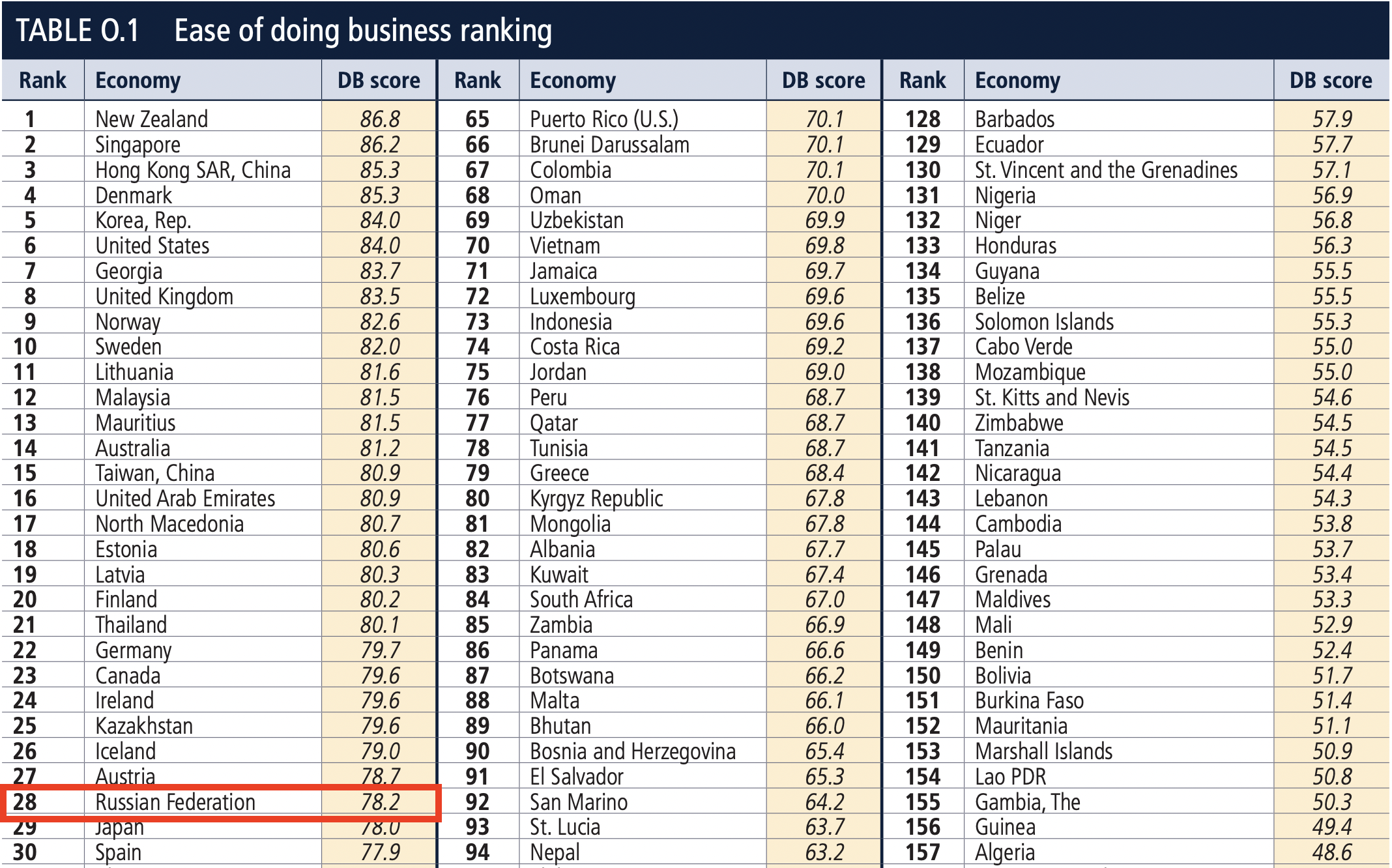
In addition, in the list of "Best Cities for Startups" released by StartupBlink, a global entrepreneurship research institution, Moscow, the capital of Russia, ranked in the top ten.
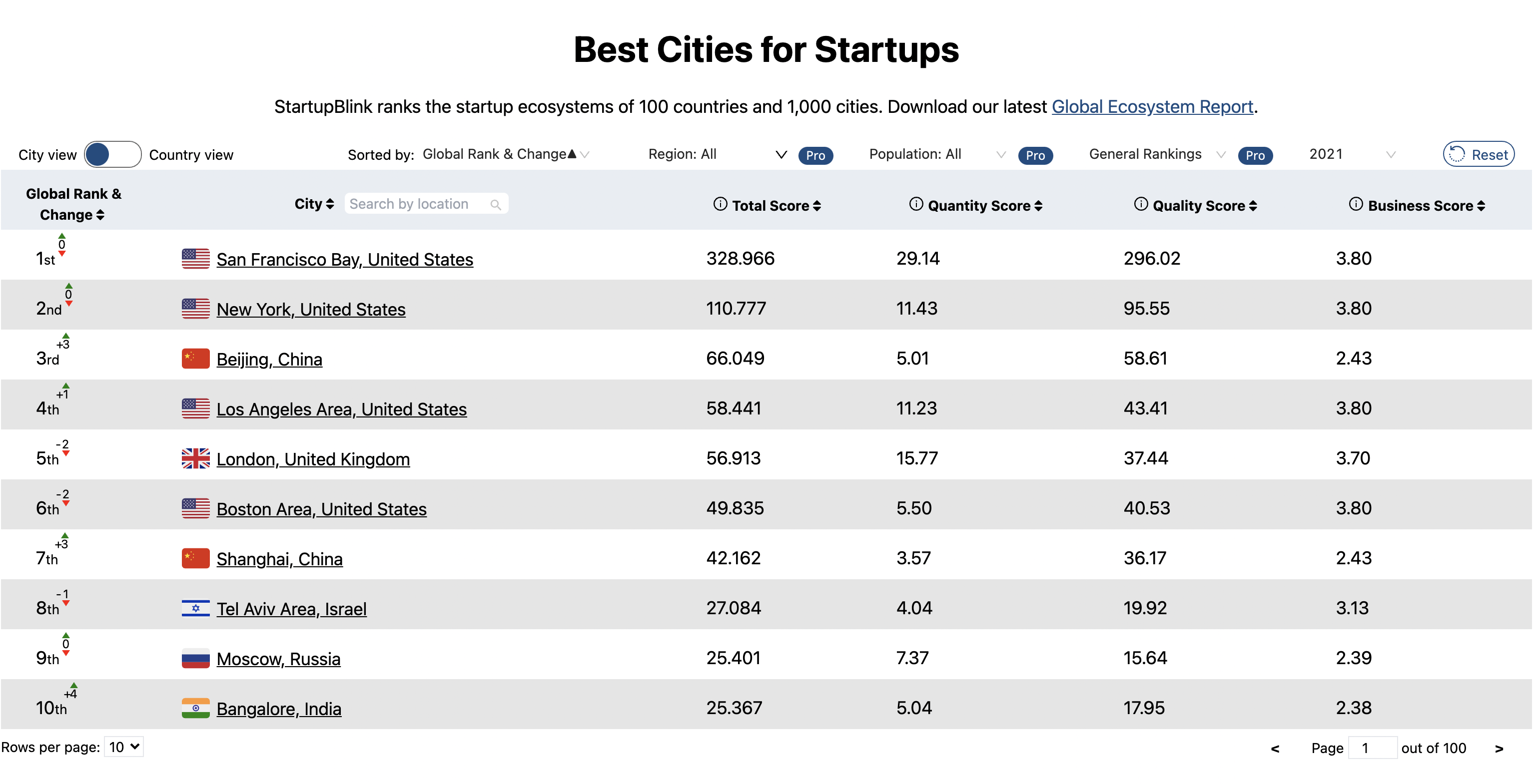
So what makes Russia's business environment better?
First, relax market access conditions and create a fair competition environment. It is understood that in terms of market access, the Russian government has lowered the threshold of market access through government decrees of the Russian Federation, allowing small and medium-sized enterprises to enter industries that were previously completely "monopolized" by government departments or state-owned enterprises. At the same time, in order to ensure the interests of SMEs and increase the proportion of government departments and state-owned enterprises purchasing SMEs' products and using SMEs' services, the State has also formulated a relevant "contact system". It is reported that from 2015 to 2019, the proportion of "contact" between government departments and state-owned enterprises and SMEs increased from 9% to 25%.
Secondly, a flexible and constantly improving legal system. As Russia is in the stage of transformation and development, various policies are constantly adjusted, and the country's company law is also constantly improving. The reason to ensure that relevant laws can be timely adjusted with economic development is that there are fewer restrictions on the right to propose legislation in this country. Today, Russia's company law system, which takes Part I of the Civil Code of the Russian Federation, the Joint Stock Company Law, the Limited Liability Company Law, the Special Legal Status Law of the Russian Federation on Staff Joint Stock Companies (People's Enterprises), the State Registration Law of the Russian Federation on Legal Persons and Self Employers and other separate laws and special regulations as the basic framework, has the characteristics of both the continental law system and the Anglo American law system.
In addition, the capital market is fair and transparent. Russia was previously known as a "net exporter of capital". In order to change this situation and attract foreign investors, Russia has improved the fairness and transparency of the capital market. On the one hand, in order to protect the right of foreign investors to invest in Russia and obtain income from their investment, in most cases, foreign investors enjoy "national treatment". Russia implements tax stability clauses for foreign investors, namely "grandfather clause", which prohibits raising certain federal tax rates until they recover their initial investment. On the other hand, Russia has some restrictions on foreign investors. Although foreign investors are allowed to invest in most fields, it also clearly stipulates that foreign investment in banks, credit organizations, insurance companies, mass media, broadcasting organizations, airlines, non-commercial organizations and other fields is subject to Russian specific laws.

Hot track
Speaking of the hot industries in Russia, in addition to the military industry, energy and other industries we mentioned above, artificial intelligence and e-commerce have become the hot tracks in Russia in recent years.
First, let's take a look at the AI industry. President Putin attaches great importance to the development of "artificial intelligence", especially the application of this technology in national security and military. He said that "artificial intelligence means a large number of threats based on and difficult to predict at present. Whoever can become a leader in this field can dominate the world."
Today, Russia's AI technology is particularly outstanding in military, security, anti surveillance and other aspects.
In addition, another major feature of AI development in Russia is that it is dominated by large enterprises. "Russian Google" Yandex is one of them. In addition to the search engine, this Russian super giant has also deployed e-commerce, online car hailing, and today's hot driverless. In the field of artificial intelligence, Yandex has also developed an artificial intelligence voice assistant Alisa (also known as Alice) and an intelligent hardware product, Yandex. Station.
In contrast, in Russia, there are relatively few start-ups that fully focus on AI, and most of them still stay at the level of algorithm research, without the ability of productization and commercialization.
If you ask about the hottest track in Russia today, e-commerce is definitely one of them. According to Bloomberg, in 2020, more than 10 million consumers poured into various e-commerce platforms in Russia due to the impact of the epidemic, which also made this ever tepid track usher in an explosion. Recently, Denis Manturov, Minister of Industry and Trade of Russia, said that in 2021, the size of Russia's e-commerce market is expected to exceed 4 trillion rubles (about 51 billion dollars). Five years ago, the e-commerce market in this country was less than 1 trillion rubles (about 12 billion US dollars).
The huge market demand has made a lot of players eager to get a piece of the cake. Different from the Chinese and American e-commerce market, the Russian e-commerce market is still in its infancy. Although many players have entered the market, there is no absolute leader such as Amazon, Alibaba and JD. It is understood that Wildberry, the country's largest online retailer, will have a market share of about 13% in 2020. The main competitors of Wildberry include the first Russian e-commerce companies Ozon and Alibaba QuickConnect, the Russian Internet giant Yandex, and Joom and Lamoda.
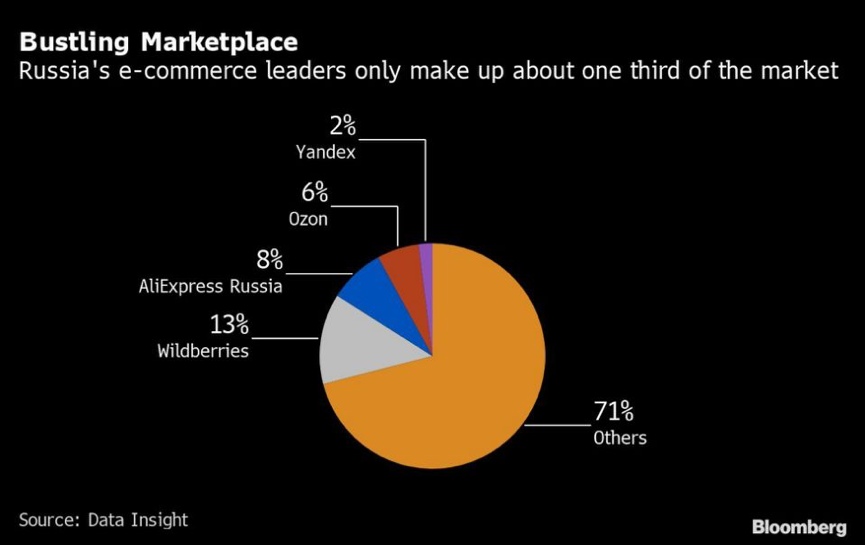
As far as the current Russian e-commerce market is concerned, there is still a lot of room for growth. Although the epidemic has forced Russian consumers to "move offline shopping to online", the long-term shopping habits are not so easy to change. Some analysts believe that with the gradual easing of the epidemic, and the Russian logistics distribution system still needs to be strengthened, offline shopping will still dominate for some time. According to AKIT data of Russian Association of E-Commerce Retailers, in 2020, the retail sales of online shopping will only account for about 10% of the total social retail sales in Russia.
In addition to artificial intelligence and e-commerce, national defense, automobile and automatic driving, cloud technology, medical health, blockchain and other fields have also received extensive attention in Russia.
Investment
From the perspective of investment, according to Crunchbase data, Russian enterprises raised 702.9 million dollars in 281 transactions in 2020. Affected by the epidemic, although the number of investment transactions in 2020 increased from 246 in 2019 to 281, the amount of funds raised decreased from 869 million in 2019 to 702.9 million in 2020.
In addition, in 2020, the number and amount of investment in Russian accelerators decreased significantly, from 64 in 2019 to 35 in 2020, and the amount also decreased from 5.5 million dollars to 3.8 million dollars. In contrast, CVC has injected US $307 million into Russian enterprises through 47 investments in 2020. In addition, angel investors are also very active in 2020, injecting more than 37 million dollars into enterprises through 64 transactions.
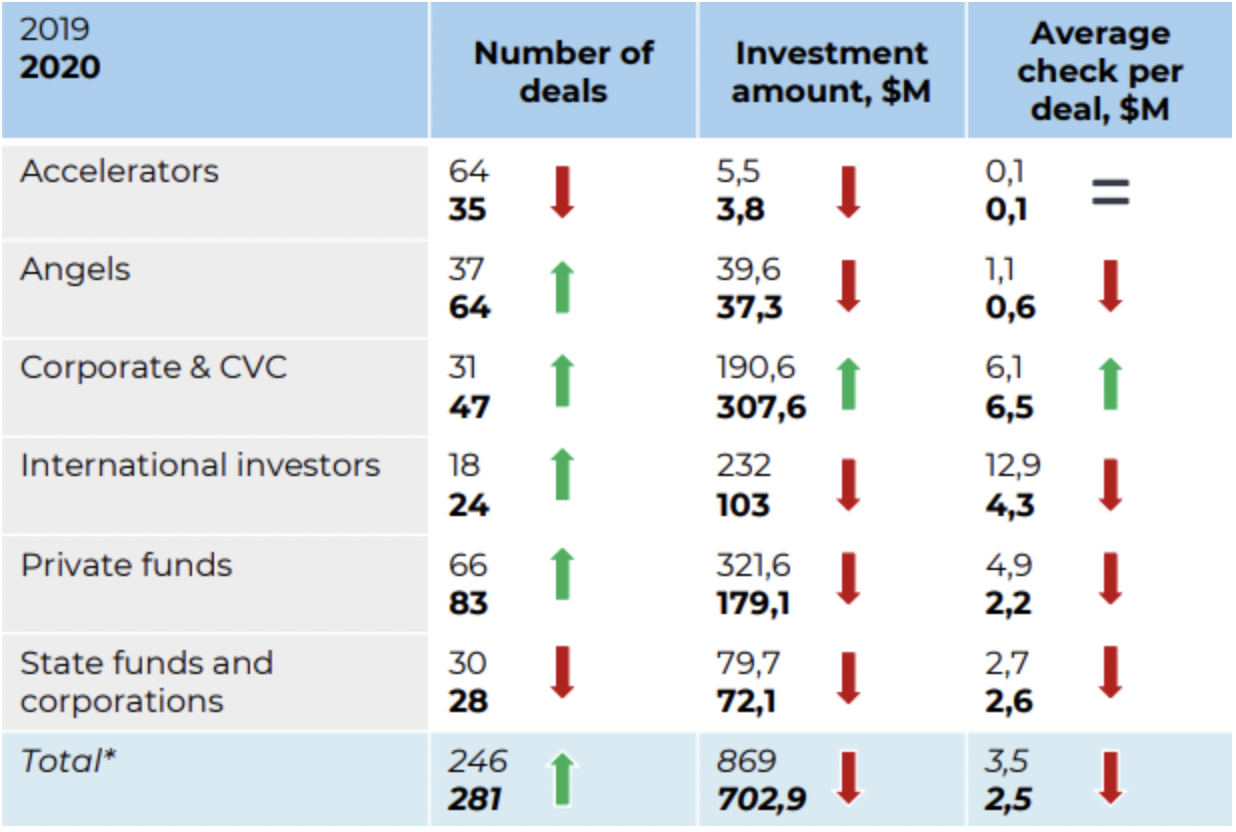
In terms of foreign direct investment (FDI), after Russia's accession to the WTO, it eased the access restrictions on foreign capital in some areas to attract and encourage foreign investment in Russia. In recent years, capital and enterprises from the United States, Germany and China have begun to invest in the Russian market. The impact of the epidemic has caused Russia's FDI to drop by 70% in 2020. However, with the relief of the epidemic, foreign capital seems to have "regained confidence" in the Russian market. Russian satellite news agency reported on January 19 that according to the data of the Russian Central Bank, the amount of foreign direct investment in Russia in 2021 will be 30.7 billion US dollars, 3.8 times the amount in 2020.
When it comes to well-known investment institutions in Russia, we have to mention Almaz Capital, which has invested in "Russian Google" Yandex. This investment institution, founded in 2008, has provided financial support for more than 30 enterprises. In addition, Russia Partners, one of the largest investment institutions in Russia, Addventure, which focuses on the field of food technology and general health, Runa Capital, which focuses on the early stage of enterprises, and Genezis Technology Capital, which invests in enterprises in Russia and many European countries, etc. In addition, Russia has also bred a number of well-known investors, including "Russian Sun Zhengyi", the founder of DST Yuri Milner, Russian entrepreneur, investor Roman Abramovich, Russian famous angel investor Len Blavatnik, etc.
Chinese enterprises focusing on the Russian market
China Russia relations are friendly, and political and economic and trade relations are developing steadily. In 2021, China has become the third largest source of investment for Russia after Germany and the United States.
It is understood that Moscow is the most concentrated city of Chinese investment in Russia, with more than 300 Chinese enterprises, mainly involving investment projects in real estate and logistics. In December 2020, the Russia China Intergovernmental Investment Cooperation Committee approved a list of 70 major projects, with a total investment in non energy fields of 112 billion US dollars. According to the Commission, 65 projects with an amount of 106.2 billion US dollars are being implemented in Russia.
In addition, according to the Development Report of Chinese Enterprises in Russia issued by the Russian General Chamber of Commerce of China, in 2021, there will be more than 1000 Chinese enterprises registered in Russia, mainly involved in mining industry, agriculture, forestry, animal husbandry, fishery, real estate, software, IT services, finance and other fields.

At the same time, many well-known Chinese enterprises have also laid out the Russian market early. This includes Huawei, Xiaomi, Realme and other Chinese mobile phone manufacturers. According to Counterpoint data, Xiaomi surpassed Samsung for the first time in Q4 of 2020 and became the mobile phone brand with the highest online sales in Russia. In addition, there are AliExpress, which aims at the Russian e-commerce market, and newcomers who entered the market in 2013 and cooperated with Russia Post.
2021 will also be a bumper year for Chinese auto companies going to Russia. On December 31, 2021, Russian satellite news agency reported that according to the data of Russian European Enterprise Association, in the first 11 months of 2021, Chinese automobile manufacturers sold 103,384 new cars in Russia, an increase of 1.1 times over the previous year, setting a record for the sales of Chinese automobile brands in Russia. Among them, Chery has also been selected as one of the top ten best-selling automobile brands in Russia. At the same time, Chinese brands will occupy a record 7.5% share in the Russian auto market, twice the share in 2020.
Tearing off the "label" and making positive changes, Russia is becoming an emerging entrepreneurial country in Europe.
In fact, in the past few years, 36Kr Global, Asia's leading new business media and enterprise service platform, has helped Asia's innovation capabilities cross national borders and be applied and tested in more markets by mobilizing ecological resources and service experience across Asia. In 2021, in order to provide the value of connectivity in a wider geographical scope,36Kr Global established the European Station KrEurope and Australia New Zealand Station Kr ANZ, aiming to help more Asian companies expand markets in Europe, Australia and New Zealand together with local partners, and help overseas companies enter Asia to promote business cooperation in Asia and overseas regions in a wider geographical scope.If your company is interested in cooperation, please contact zhaoxiaochun@36kr.com Detailed consultation.
Wen | Deng Yunxi
Editor | Zhao Xiaochun
